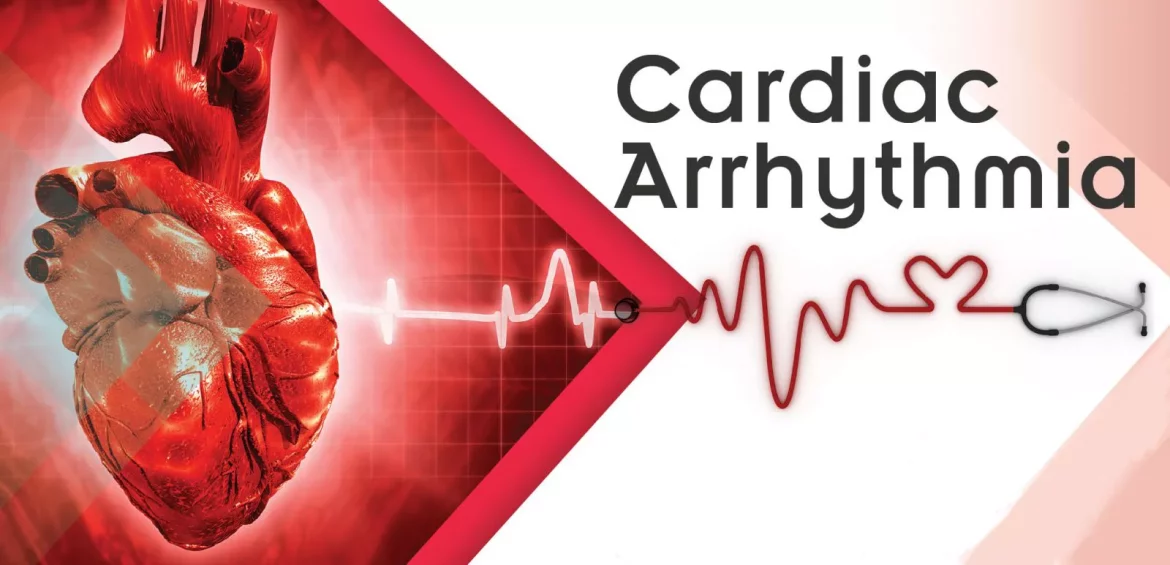Arrhythmia, a condition characterized by an irregular heartbeat, can significantly affect an individual’s daily life. The heart, a vital organ, relies on a consistent rhythm to efficiently pump blood throughout the body. When this rhythm is disrupted, it can lead to various health complications and lifestyle adjustments. This article explores the different types of arrhythmias, their symptoms, potential causes, and the profound ways they can impact everyday living.
Types of Arrhythmias
Arrhythmias come in several forms, each with distinct characteristics and effects on the body. Understanding these types is crucial for recognizing and managing the condition.
Atrial Fibrillation (AFib)
Atrial fibrillation is the most common type of arrhythmia. It occurs when the heart’s upper chambers (atria) beat irregularly, causing poor blood flow. AFib can lead to blood clots, stroke, heart failure, and other heart-related complications.
Bradycardia
Bradycardia is characterized by a slower than normal heart rate, typically fewer than 60 beats per minute. This condition can cause fatigue, dizziness, and fainting due to insufficient blood flow to the brain and other organs.
SEE ALSO: How Do Arrhythmias Occur with A Normal Heart Rate?
Tachycardia
Tachycardia refers to a heart rate that exceeds the normal resting rate, usually over 100 beats per minute. This can occur in the upper or lower chambers of the heart and may lead to symptoms like palpitations, shortness of breath, and chest pain.
Ventricular Fibrillation
Ventricular fibrillation is a severe form of arrhythmia that occurs when the heart’s lower chambers quiver instead of pumping normally. This condition is life-threatening and requires immediate medical attention.
How Can Arrhythmia Affect Your Life?
1. Impact on Daily Life
Living with arrhythmia can have a profound impact on various aspects of life, from physical health to emotional well-being and daily activities.
2. Physical Health
Arrhythmia can lead to several physical health issues, including:
Reduced Exercise Tolerance: Individuals with arrhythmia may experience fatigue and shortness of breath during physical activity, limiting their ability to exercise.
Increased Risk of Stroke: Especially in cases of AFib, where blood clots can form and travel to the brain, causing a stroke.
Heart Failure: Prolonged arrhythmia can weaken the heart, leading to heart failure and reduced ability to pump blood efficiently.
Fatigue and Weakness: Persistent irregular heartbeats can cause chronic fatigue and general weakness, impacting daily tasks and overall quality of life.
3. Emotional and Mental Health
The diagnosis and management of arrhythmia can also affect emotional and mental health:
Anxiety and Depression: The uncertainty and fear of experiencing an arrhythmia episode can lead to anxiety and depression.
Stress: Managing a chronic condition, frequent medical appointments, and lifestyle adjustments can be stressful.
Social Isolation: Symptoms like fatigue and the need to avoid certain triggers can lead to social withdrawal and isolation.
4. Lifestyle Adjustments
Living with arrhythmia often requires significant lifestyle changes to manage the condition and reduce the risk of complications:
Dietary Changes: Individuals may need to adopt a heart-healthy diet, low in sodium and saturated fats, and high in fruits, vegetables, and whole grains.
Exercise Modifications: While regular exercise is beneficial, it may need to be tailored to avoid triggering symptoms. Low-impact activities like walking, swimming, and yoga are often recommended.
Medication Management: Adherence to prescribed medications, such as anticoagulants, beta-blockers, and antiarrhythmic drugs, is crucial for managing arrhythmia.
Avoiding Triggers: Identifying and avoiding factors that trigger arrhythmia episodes, such as caffeine, alcohol, and stress, is essential.
5. Impact on Work and Productivity
Arrhythmia can affect an individual’s ability to work and maintain productivity:
Work Limitations: Physical symptoms like fatigue and dizziness can reduce the ability to perform job-related tasks, especially those requiring physical exertion or high concentration.
Frequent Medical Appointments: Managing arrhythmia often involves regular medical appointments, which can disrupt work schedules.
Occupational Hazards: Certain occupations, such as those involving heavy machinery or high stress, may pose additional risks for individuals with arrhythmia.
6. Financial Implications
The financial impact of living with arrhythmia can be significant, encompassing medical expenses and potential loss of income:
Medical Costs: Expenses related to doctor visits, diagnostic tests, medications, and potential hospitalizations can accumulate.
Insurance Challenges: Navigating health insurance coverage and potential out-of-pocket costs can be challenging.
Income Loss: Reduced ability to work or the need for career changes can lead to decreased income.
Managing Arrhythmia
Effective management of arrhythmia involves a combination of medical treatment, lifestyle adjustments, and support systems:
Medical Treatment
Medical treatment for arrhythmia varies based on the type and severity of the condition:
Medications: Antiarrhythmic drugs, beta-blockers, and anticoagulants are commonly prescribed to control heart rate and prevent complications.
Cardioversion: A procedure that uses electrical shocks to restore normal heart rhythm.
Ablation: A minimally invasive procedure that destroys areas of heart tissue causing the arrhythmia.
Pacemaker or Implantable Cardioverter-Defibrillator (ICD): Devices implanted in the chest to regulate heart rhythm.
Lifestyle Adjustments
Making lifestyle changes can help manage symptoms and improve overall health:
Healthy Diet: Following a heart-healthy diet rich in fruits, vegetables, lean proteins, and whole grains.
Regular Exercise: Engaging in regular, moderate exercise while avoiding activities that trigger symptoms.
Stress Management: Practicing stress-reducing techniques like meditation, yoga, and deep breathing exercises.
Avoiding Triggers: Identifying and avoiding factors like caffeine, alcohol, and smoking that can exacerbate arrhythmia.
Support Systems
Having a strong support system is crucial for managing arrhythmia:
Family and Friends: Emotional support from loved ones can help cope with the condition.
Support Groups: Joining support groups for individuals with arrhythmia can provide valuable information and emotional support.
Healthcare Team: Regular communication with healthcare providers ensures proper management and monitoring of the condition.
Conclusion
Arrhythmia can significantly impact an individual’s life, affecting physical health, emotional well-being, daily activities, work, and finances. However, with proper management, lifestyle adjustments, and support, individuals with arrhythmia can lead fulfilling lives. Understanding the condition, recognizing symptoms, adhering to medical treatments, and making necessary lifestyle changes are key to managing arrhythmia and minimizing its impact on everyday life.

